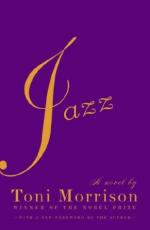|
This section contains 8,520 words (approx. 29 pages at 300 words per page) |

|
SOURCE: “Larkin's Blues: Jazz and Modernism,” in Twentieth Century Literature, Vol. 42, No. 2, Summer, 1996, pp. 258-276.
In the following essay, Leggett explores British poet Philip Larkin's fascination with traditional jazz music.
The wonderful music that swept the world during the first half of this century … was of limited appeal, but that appeal was new and definite: a certain area of musical and rhythmic sensibility was being played on for the first time.
—Larkin, “Wells or Gibbon?” in All What Jazz
Russell, Charles Ellsworth “Pee Wee” (b. 1906); clarinet and saxophone player extraordinary, was, mutatis mutandis, our Swinburne and our Byron.
—Larkin, Introduction to Jill
Offering an explanation for the source of his poetry (“unhappiness”) and the source of his popularity (“writing about unhappiness”), Larkin told an interviewer late in his career that deprivation was for him what daffodils were for Wordsworth (RW 47).1 Although unhappiness is a state we readily associate...
|
This section contains 8,520 words (approx. 29 pages at 300 words per page) |

|


